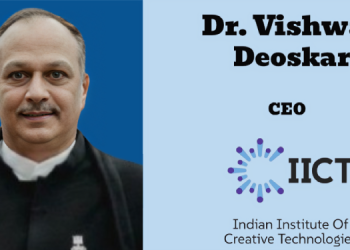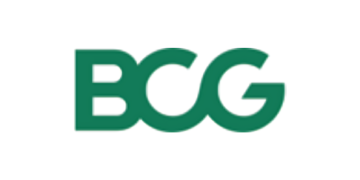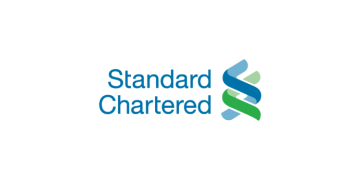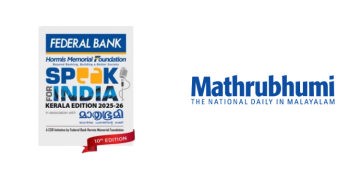The outbreak of the coronavirus has immensely shaken up the entire world, with schools, colleges, workplaces, malls, theatres and much more being shut. Conferences and sporting events such as IPL have been postponed. Government will set up a COVID-19 task force to tackle financial crisis arising in the wake of the ongoing coronavirus spread, as said by PM Modi in his address to the nation.
Medianews4u reached out to leaders from the world of advertising, broadcast, digital, brands and the universe; to understand on how this has affected the businesses and the solutions to this global menace.
Abraham Thomas, CEO, BIG FM
We have moved completely to a remote digital working model since the last weekend that has seen each one of our 58 stations functioning live from the house of our employees since Monday morning. Fortunately our contingency planning and disaster management plans helped us to shift seamlessly to work from remote locations using our sound equipment systems connected via a VPN. Meanwhile our business teams are optimizing this situation by digitally interacting with more than 500 clients on a daily basis through video conferencing, messaging, email or phone calls.
As a leading national media network we believe we have two key responsibilities. The first one is keeping our teams, families, communities, and society at large safe and prevent any further spread of the virus. Our responsibility is to be there for our listeners at this critical time by staying positive, dispelling any fake news and rumors by relying only on government sources, while practicing social distancing and hygiene at the same time.
Secondly, we believe that we must stay open for business to help keep the economy running for societies to continue to function. Any further disruption will adversely affect the vulnerable sections of our society.
Our advertisers to have responded favorably by communicating with our sales teams via digital mediums. Our support teams are also equipped to service client requirements from multiple remote locations while maintaining the highest level of sales servicing, creative solutions, scheduling, traffic, billing, and collections.
We earnestly hope other organizations will use technology to keep their businesses open while staying safe
Samarjeet Reen, Chief Strategy Officer, Update Geotarget
The impact of Covid-19 in India is yet to playout for the M&A industry. Reports tell us these are very early days. Yet, we can immediately see that Events, Sports, Reality TV, Primetime TV, and all media planning centered around this inventory will force planners to find different mediums for messaging.
As the real business impact is felt across the supply chain, ad budgets will be hit, and marketers will be compelled to be creative in their media planning, with cost-efficient solutions that can help with wide reach, high availability and micro-targeting, three essential metrics for a higher ROI in these constrained times.
The special challenge that India faces, is that we have a very large count of informal blue-collar services and micro / small retailers, which includes home delivery, house maintenance etc. These services have an indirect but strong contribution to the productivity of our workforce. Our touchpoints and engagement with micro and small service providers and retailers, coupled with our population and size, will result in higher risk for India, and our support structure.
While we look after our own health and our own business, we must ensure that the small service providers and retailers get adequate support to deal with containment of Covid-19, and income sustenance, so they can get back on their feet quicker. Social empathy and responsibility should be the highest priority, more so for better-placed industry leadership.
Aniket Sharma, Director & Co-founder, 121XP
The experiential industry is one of the critically affected industries. The industry thrives with small and large format events and conventions for large audiences. From corporate annual events to sporting ceremonies every planned event has been either indefinitely pushed or canceled. We specialize in experiential marketing which goes beyond events and further includes brand activations, rural marketing, consumer contact programs all of which have been affected currently suspended and the work across industry and agencies has come to a sudden halt. The longer the world and India as a country takes limiting Corona and coming up with an antidote the more the economy and respective affected industries will slump.
In otherwise stable times, the impact would have been temporary but the economic slump from last financial year ending with a near lockdown due to corona the signs are ominous. One would be a fool to not adapt quickly to the situation if one has to survive the phase and gear up for the gestation period that will follow the recovery. Realistically speaking we are going to lose the first 45-60 days at the minimum starting this next financial year, that’s going to be a 1 quarter or 25% impact on business straight away.
I think the best thing the companies can do is to discuss the current situation with transparency with their teams. These are extraordinary times and keeping it open for extraordinary solutions should be step one. Let the team come up with their potential solutions on how to handle the situation and as leaders, we will need to back the teams and their solutions here. Second, this is the time to also reach out to our relationship clients and be honest and have them share honest plans for the year so the organization can plan their backend accordingly. Thirdly, this is also a time for the industry and peer companies to come together and discuss the way forward together. The last thing you want is a price war as situations start to improve. You need certain industry benchmarking to happen collaboratively where everyone benefits together for everyone as an industry and not just an individual. Not thinking too far ahead is also going to be the key. We are looking at a 9-month financial year instead of 12 months. Plan accordingly.
Nishanth Chandran, Founder and CEO of TenderCuts
In the last few weeks, there was a huge drop in chicken sales in the local market, however, we saw an increase in our sales across categories including chicken. Customers have become more conscious about food safety and quality standards and this has led to many enquires in both our stores and call-center.
We foresee a faster adoption of consumers moving from wet market to organized players who adhere to FSSAI and WHO/Global Food Safety Standards. FSSAI will also drive the whole meat industry with the necessary training and enforcing strict food safety standards.
Ambika Sharma, Founder & Managing Director, Pulp Strategy
Coronavirus is quivering up business and consumer behavior on a gigantic scale. This disease has become a global pandemic and has emerged in more than 100 countries and territories. This virus has affected the trade and industries worldwide, disruptions in all the verticals. This has led to closing down of schools, calling off of the sports matches, vital official meetings, conferences have been canceled resulting in numerous missed partnership opportunities, etc. The immediate impact of this has also come to a digital marketing agency in the form of cancellations/postponement of the campaign, sales and digital programs which were scheduled till 31st of March. In the long run, the overall spends will change as the shopping behavior of consumers are changing, there is an impending downgrade of industry spends in advertising. Change in behavior e-commerce companies will also define how the digital advertising industry grows.
As the impact of the Coronavirus disease continues to develop, employers and employees are increasingly concerned about the risk of contamination. Following are the steps which can be taken to mitigate risks in case of a Coronavirus:
First and foremost strategy is that in an organization the HR department should gather desired updated
COVID-19 information ruled out by the government and accordingly, the communication strategy should be multi-pronged by using all channels of communication available.
Closely monitoring the health of employees by checking the temperature of everyone arriving and leaving work and sending anyone with a fever home to a 14-day self-quarantine. Similarly, many companies have adopted Work from home policy in order to ensure the long-term well-being of its people.
Restriction on non-essential business travel wherein most companies imposing bans on all business travel.
Lastly, tools like Skype, Google Hangouts, or Zoom and Tele-conferences must be encouraged to collaborate and communicate effectively with clients and team members.

















